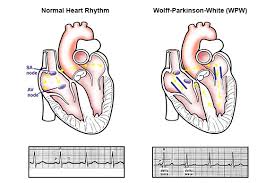Protocols

Protocols


CROUP
Croup, also known as laryngotracheobronchitis, is a type of respiratory infection that is usually caused by a virus. The infection leads to swelling inside the trachea, which interferes with normal breathing and produces the classic symptoms of "barking" cough, stridor, and a hoarse voice.

CEREBROVASCULAR ACCIDENT
Cerebrovascular accident (CVA) is the medical term for a stroke. A stroke is when blood flow to a part of your brain is stopped either by a blockage or the rupture of a blood vessel. There are important signs of a stroke that you should be aware of and watch out for.

BURNS
Burns are one of the most common household injuries, especially among children. The term “burn” means more than the burning sensation associated with this injury. Burns are characterized by severe skin damage that causes the affected skin cells to die

ASTHMA
Asthma is a common long-term inflammatory disease of the airways of the lungs. It is characterized by variable and recurring symptoms, reversible airflow obstruction, and bronchospasm. Symptoms include episodes of wheezing, coughing, chest tightness, and shortness of breath.

WOLFF-PARKINSON- WHITE SYNDROME
Wolff–Parkinson–White syndrome (WPWS) is a disorder due to a specific type of problem with the electrical system of the heart which has resulted in symptoms

VENTRICULAR TACHYCARDIA
Ventricular tachycardia is a heart rhythm disorder (arrhythmia) caused by abnormal electrical signals in the lower chambers of the heart (ventricles)

SUPRAVENTRICULAR TACHYCARDIA
Supraventricular tachycardia (SVT), also called paroxysmal supraventricular tachycardia, is defined as an abnormally fast heartbeat. It is a broad term that includes many forms of heart rhythm problems (heart Arrhythmia) that originate above the ventricles (supraventricular) in the atria or AV(atrioventricular) node.

HEART BLOCKS
Heart block is an abnormal heart rhythm where the heart beats too slowly (bradycardia ). In this condition, the electrical signals that tell the heart to contract are partially or totally blocked between the upper chambers (atria) and the lower chambers (ventricles).

BRADYCARDIA
Bradycardia is a slower than normal heart rate. The hearts of adults at rest usually beat between 60 and 100 times a minute.

ATRIAL FIBRILLATION/ FLUTTER:
There are many similarities between atrial fibrillation and atrial flutter, there are also significant differences.Atrial flutter is an abnormality of conduction within the atria and, as with Atrial Fibrillation, the ventricles work normally.

ARRHYTHMIAS
Heart arrhythmia, also known as irregular heartbeat or cardiac dysrhythmia, is a group of conditions where the heartbeat is irregular, too slow, or too fast

ANAPHYLAXIS
Anaphylaxis is a severe allergic reaction that needs to be treated right away.




